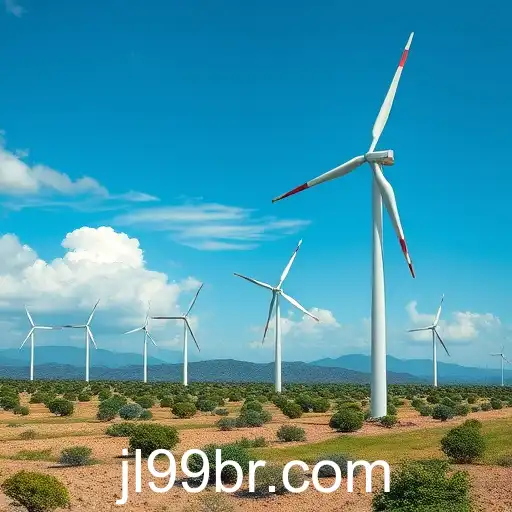
As the world faces growing challenges posed by climate change, the integration of artificial intelligence (AI) with renewable energy sector stands out as a beacon of hope. The impact of AI-driven technologies in optimizing energy efficiency and integrating renewable sources into the global energy grid is profound. Companies around the world have begun leveraging AI algorithms to predict energy consumption patterns, reduce operational costs, and enhance the efficiency of renewable energy systems.
A recent report highlights the potential growth of the AI market in renewable energy, predicting significant advancements over the next five years. The demand for cleaner energy sources is pushing technology companies to innovate at an unprecedented rate, using AI to manage the unpredictability of renewable energy production such as wind and solar power. These AI systems not only help in forecasting weather conditions but also in balancing supply and demand ratios, thus ensuring a steady flow of power.
Furthermore, governments worldwide are increasingly recognizing the role of AI in tackling climate change. Policies are being rolled out to support tech companies harnessing AI solutions, and investment in such technologies is on the rise. This collaboration between public and private sectors is essential for a sustainable future.
Leading the charge are companies like Google and IBM, which have made significant investments in AI technology aimed at optimizing energy usage. Google's DeepMind, for example, has successfully implemented machine learning to reduce energy consumption in data centers by predicting energy usage and regulating cooling systems accordingly. Similarly, IBM’s Watson is being utilized to predict maintenance requirements of wind turbines, thus reducing downtime and increasing efficiency.
Despite these advancements, challenges remain in the widespread adoption of AI in the renewable energy sector. Data privacy concerns, high initial costs, and a shortage of skilled professionals capable of designing and maintaining these AI systems present ongoing issues. However, with continued research and development, as well as supportive policies, these barriers can be surmounted.
In conclusion, the synergy between AI and renewable energy presents a viable solution to some of the most pressing issues of our time. As technological innovations continue to evolve, so will our capacity to manage the planet's resources more effectively, paving the way for a more sustainable future.


